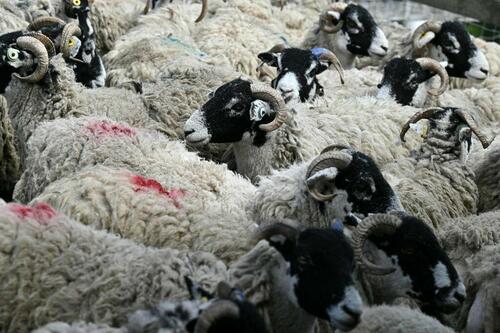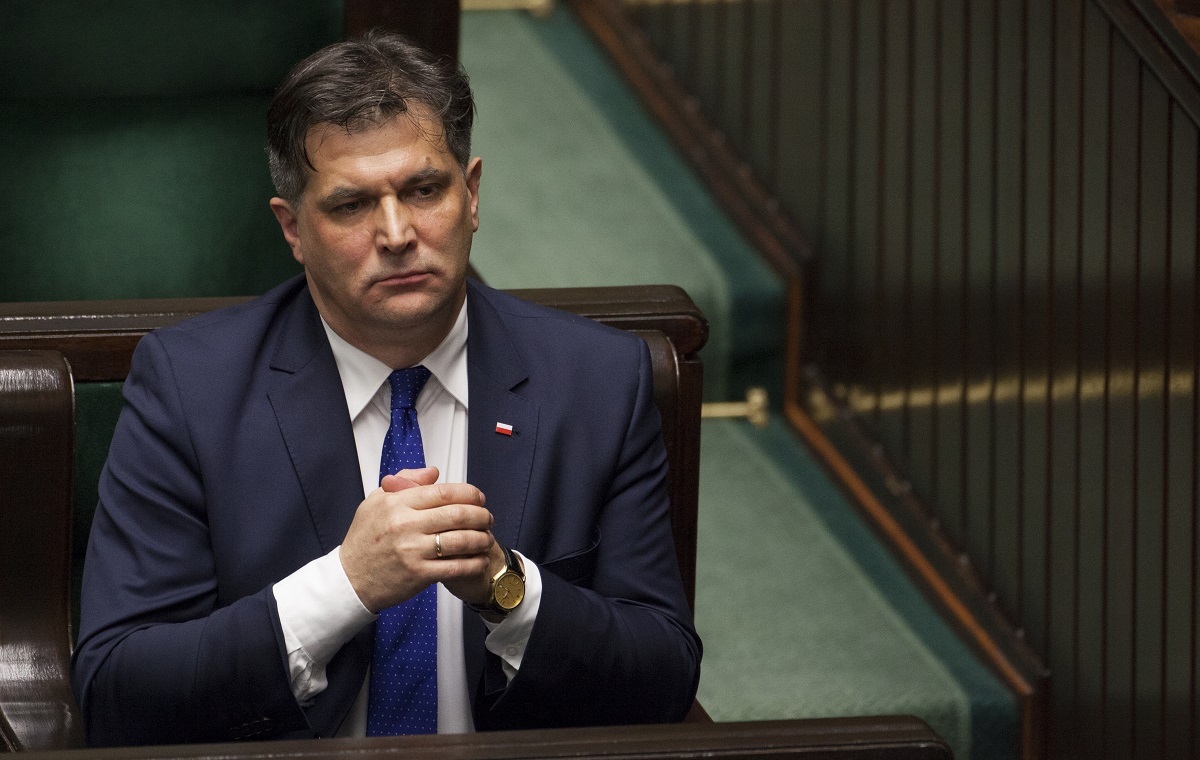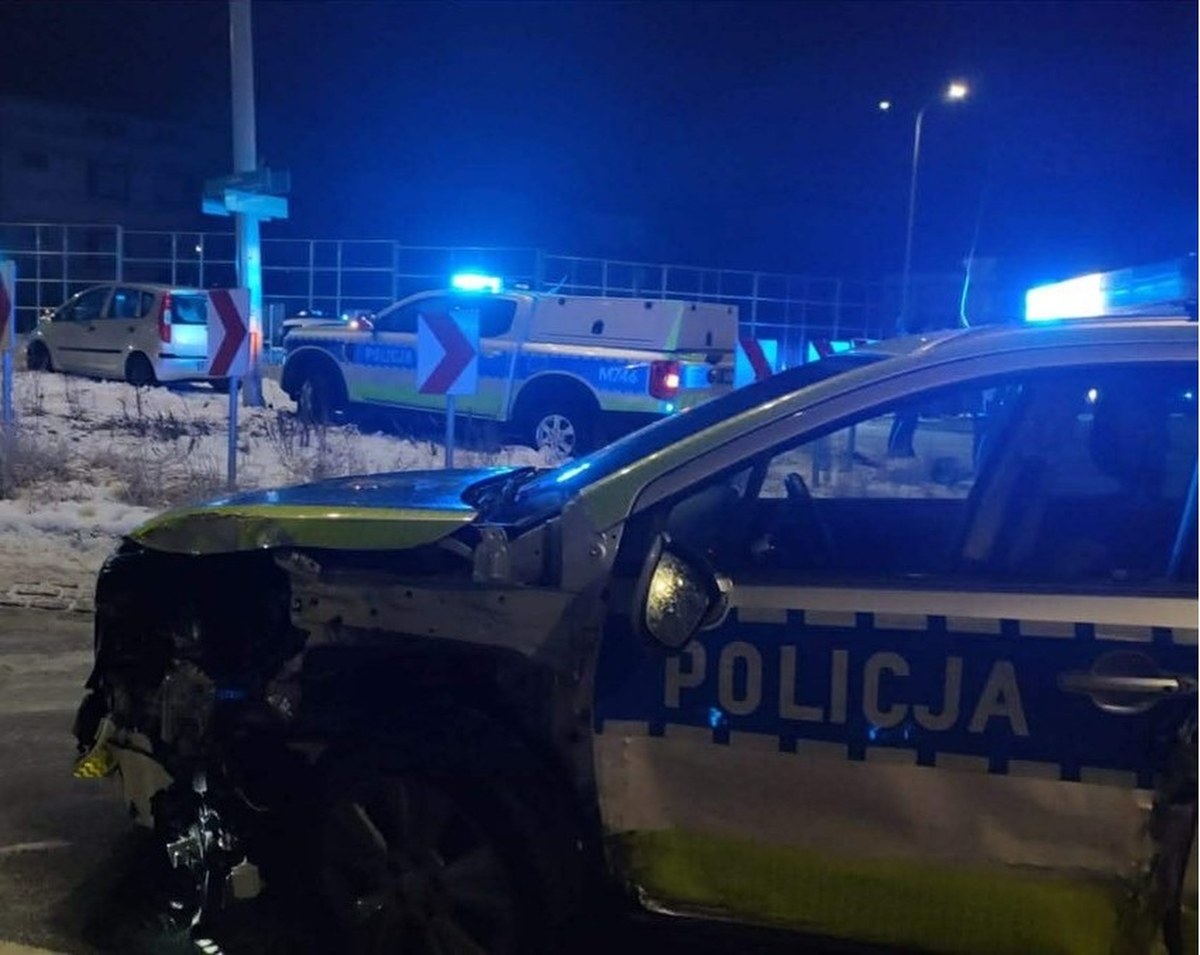
Стремление сократить животноводство для достижения климатических целей (из-за бурения и фартинга) беспокоит фермеров Великобритании
Автор: Оуэн Эванс, The Epoch Times (выделено нами),
Британские правительственные советники призвали сократить количество крупного рогатого скота и овец в стране, чтобы снизить общий уровень выбросов метана.

Чиновники настаивают на том, что массового отсеивания не планируется.
Но фермеры обеспокоены тем, что это часть растущего стремления снизить уровень скота, который может принести в жертву традиционный выпас скота и нанести ущерб хрупким экосистемам, которые он поддерживает.
Политика чистого нуля в Великобритании идет дальше, чем в Европейской комиссии, где животноводческие фермы остаются вне регулирования до следующего года.
В феврале независимый советник Великобритании по климатическим действиям, Комитет по изменению климата (CCC), чьи рекомендации решительно направляют государственную политику, рекомендовал к 2040 году сократить на 27% количество крупного рогатого скота и овец, чтобы сократить выбросы парниковых газов.
По данным правительства Великобритании, сельское хозяйство является крупнейшим источником внутренних выбросов метана, на долю которого приходится 49% от общего объема выбросов. Из этого, Около 85 процентов сельскохозяйственного метана поступает от коров и других жвачных животных через энтеральную ферментацию и выделяется в основном как отрыжка, но также метеоризм.
Один из обсуждаемых вариантов в докладе Комитета по окружающей среде и изменению климата Палаты лордов за 2024 год в качестве стратегии смягчения последствий включал «сокращение численности скота жвачных животных, обусловленное изменением рациона питания и сокращением пищевых отходов. "
«Это полностью назад» ?
Британские животноводческие фермы, которые в основном основаны на траве, интегрированы в знаковую лоскутную сельскую местность, где овцы и крупный рогатый скот выпасаются на открытых полях, разделенных изгородями и каменными стенами, как часть сложной природной экосистемы.
Алан Хьюз, фермер-арендатор четвертого поколения, который является частью кампании Farmers to Action по защите сельскохозяйственных прав, сказал, что более широкие предложения по животноводству игнорируют экологическую функцию выпаса скота.
"Это полностью назад, чтобы остановить выпас. Это вызывает пожары, которые затем выделяют гораздо больше CO2, чем последовательность домашнего скота.- сказал он.
Он добавил, что без овец, «Овцы не едят сухое вещество». которые затем превращаются в клещи.
«Тогда начинаются лесные пожары, от торфа и от культур, которые должны были быть съедены овцами, что приводит к массовому выбросу CO2», — сказал он.
Помимо риска пожаров, Хьюз сказал, что сокращение скота также наносит ущерб продовольственной безопасности и ухудшает природные экосистемы.
«Самая большая проблема, с которой мы столкнемся в ближайшее время, — это недостаточное количество белка, чтобы прокормить нашу популяцию, поэтому они смотрят на насекомых», — сказал он.
Если они заставляют нас делать больше, я называю это менее естественными способами производства. Если у вас нет выпаса скота, у вас нет навоза или улучшения биоразнообразия почвы, и именно тогда вы получаете эрозию почвы, которая вызывает пустыни, или вы вынуждены делать овощные культуры.
"Теперь, когда вы пашете поле для овощных культур, вы убиваете корневую структуру травы. Теперь это превращается в метан и углекислый газ, который фактически выделяется."
Отвечая на вопрос о комментариях, Ассоциация фермеров-арендаторов указала The Epoch Times на заявление, сделанное в феврале генеральным директором Джорджем Данном, которое также опровергло рекомендации CCC.
«Аграрии животноводства просто перерабатывают углерод, секвестрированный из атмосферы в траве, которую они выращивают, вместе с изгородями и деревьями, существующими на их владениях», — говорится в заявлении группы.
«Однако они также являются хранителями огромного углеродного банка в своих почвах, который блокирует углерод на благо нации и мира. "
Активисты
Рекомендации КХЦ имеют юридический и политический вес из-за Закона об изменении климата Великобритании 2008 года, который юридически обязывает страну к нулю к 2050 году. Великобритания является одной из немногих стран, которая связывает нулевые цели в законе с установленным законом обязательством.
Активисты используют этот закон, чтобы обеспечить действия правительства.
Крис Пэкхэм, натуралист и телеведущий Би-би-си, использовал закон в 2023 году, чтобы оспорить задержку теплового насоса и электромобилей, установленную тогдашним премьер-министром Риши Сунаком. Дело было урегулировано в октябре 2024 года после того, как новое лейбористское правительство заявило, что предыдущая администрация действовала незаконно.
Пакхэм со своей соучредителем Wild Justice теперь сосредоточен на Дартмуре, обширной болотистой местности в графстве Девон на юго-западе Англии, обвиняя овец в потере биоразнообразия.
Ведущий сказал в июльской статье Guardian, что «животноводство, особенно овцы, продолжает уничтожать то, что осталось от небольшого болота. "
Группа, представленная экологической юридической фирмой Leigh Day, предпринимает юридические действия против Совета общинников Дартмура, который представляет местных фермеров с традиционными правами на выпас скота, в соответствии с экологическими и природоохранными нормами, а не Законом об изменении климата.
Сторонники овцеводства, такие как Ассоциация Мурленда, говорят, что овцы пасутся в Дартмуре уже тысячи лет.
«Они спокойно пасут Дартмур около 3500 лет, задолго до того, как промышленная революция оставила свой след. Кажется несправедливым закладывать сегодняшние экологические проблемы в копыта животных, которые сосуществовали с этим ландшафтом на протяжении тысячелетий.
Напряжение ?
В отличие от этого, Европейский союз до сих пор ориентировался только на крупнейшие свиноводческие и птицеводческие фермы с обязательными правилами выбросов.
Фермы крупного рогатого скота остаются вне сферы охвата до официальной оценки к 2026 году.
Исследование 2023 года, опубликованное в рецензируемом журнале La Revue de l'OFCE, показало, что стада крупного рогатого скота в ЕС, возможно, должны сократиться примерно на 16,3 миллиона голов, чтобы обеспечить около 30 процентов сокращения выбросов парниковых газов к 2030 году.
Эколог и исследователь пастбищ Пабло Манзано сказал, что более широкие дебаты могут быть проигнорированы экологическими реалиями.
«Они хотят идти против скота, и особенно против обширного, пастбищного скота, потому что Они считают это чем-то, что вызывает изменение климата.— сказал он The Epoch Times.
По его словам, выпас скота необходим для сохранения биоразнообразия в Европе.
"Это хорошо понимают люди, которые работают над экосистемами.- сказал он.
" В конце концов, существует напряженность между людьми, заботящимися о климате, и людьми, заботящимися о биоразнообразии, в том смысле, что защита биоразнообразия позволяет создавать климатическое бремя для защиты биоразнообразия. "
Исследования Манзано показали, что исторические популяции диких травоядных животных на планете были на аналогичном уровне с биомассой домашних травоядных животных по всему миру, демонстрируя, что они играли постоянную роль в балансировании древних экосистем в течение миллионов лет.
Конвенция ООН об изменении климата классифицирует управляемые земли как источники выбросов без учета ключевой экологической динамики.
«Если они были возвращены в естественное состояние, это означает, что его выбросы не должны рассматриваться как антропогенные, потому что они являются частью естественных выбросов экосистемы», — сказал он.
«И это происходит не только при выпасе скота, это также происходит, например, когда мы сажаем рис в водно-болотных угодьях, водно-болотные угодья также имеют много выбросов. Они не сильно отличаются от выбросов риса. "
Чтобы предотвратить выбросы скота, некоторые политики способствуют интенсификации, а не традиционному выпасу скота.
"Чтобы усилить их, чтобы вы могли уменьшить количество продуктов на килограмм. Это определенно обсуждается,- сказал он.
«Вам нужно не только немного понять свою концентрацию газа в атмосфере, но и немного понять экологию: нишевую экологию и экологию широких экосистем. Я думаю, что многие люди также теряются в этих вещах. "
Симбиотические отношения ?
Автор и фермер Джейми Блэкетт сказал The Epoch Times, что он разделяет мнение Манзано о том, что «все, что является естественным процессом, должно поощряться как можно больше. "
«Существует симбиотическая связь между выпасом крупного рогатого скота и насекомыми, которые живут в своем навозе, птицами, которые едят насекомых. Без коров нет коровьих овец, а без коровьих овец нет насекомых. Без насекомых нет птиц. Вот как это работает, - сказал он.
Он сказал, что его собственная ферма еще не находится под прямым воздействием правил чистого нулевого животноводства, но что «угроза всегда существует». "
Пресс-секретарь КХЦ указала The Epoch Times по электронной почте на заявление в своем седьмом углеродном бюджете, в котором призвала правительство предоставить «стимулы и устранить барьеры для фермеров и землеустроителей для диверсификации землепользования и управления в создании лесов, восстановлении торфяников, биоэнергетических культур и возобновляемых источников энергии». "
В докладе также рекомендуется обеспечить "долгосрочную определенность в отношении государственного финансирования методов и технологий ведения сельского хозяйства, которые сокращают выбросы в результате рационального использования сельскохозяйственных культур и животноводства. "
Wild Justice не ответила на запрос The Epoch Times о комментариях.
Тайлер Дерден
Туэ, 08/12/2025 - 02:45













